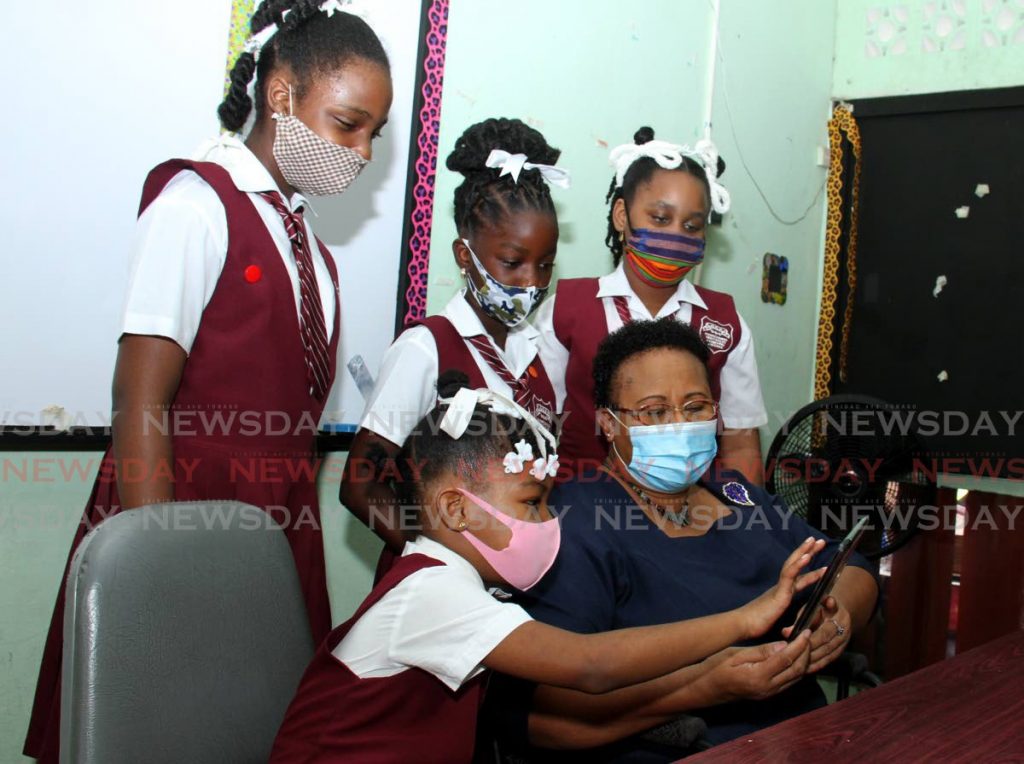Former tertiary minister: Rethink education structure

Former tertiary education minister Fazal Karim has claimed the education system has been compromised and feared the worst for the future of the nation’s children.
His statements came after statistics from the Ministry of Education (MoE) at last week’s Joint Select Committee on Social Services and Public Administration (JSC SSPA) revealed that over 46,000 students did not log on to portals that facilitated online learning.
Karim said the statistics reflected flaws in Government’s effort to provide a proper educational system and sound learning.
“Government has held office for over five years and cannot conveniently cast blame on the pandemic for its failure to digitise the education system. The glaring gaps in access to technology and education will further widen learning gaps.”
Online learning began in March, last year, as the covid19 pandemic forced the physical closure of schools and a thrust towards remote learning. But this brought an onslaught of challenges such as access to internet connectivity, access to devices, restructuring and management of time for both students, teachers and administration.
At the JSC SSPA, data revealed that 39,861 primary school students, 6,909 secondary school students and 2,195 early childhood care and education (ECCE) students were unable to access online learning resources provided by the ministry.
While the pandemic impacted the teaching and learning environment, Karim said the approaches to decision-making leaves little room for innovation.
He said, “While Government referenced Estonia as a model of excellence there is need to undertake a proper diagnostic of every student and every school to ascertain the root causes for student underperformance including, but not limited to, student learning disabilities, facilities constraints, professional development requirements for teachers and administrators, curriculum improvements and a systematic technology overhaul.”
The curriculum, Karim said, continued to be outdated, forced the use of technology on irrelevant programmes and promoted an archaic model of education.
He recommended there be further inclusions of STEM programmes, investments in skills training and entrepreneurship to bridge the unemployment gap.
“There is a critical need to develop a skills agenda – having every child develop one skill, whether it is art, music, sport, plumbing, technology or cosmetology.”
Additionally, he called for increased and relevant teacher training as he claimed it continued to remain on the back burner.
In a media release on Friday, the ministry outlined the work it has been doing, but underscored there were many complexities within the education sector that has been difficult to sort out.
“The Ministry of Education, given its mandate of no child left behind, could not have sat idly by, in the throes of a global pandemic, and allowed over 100,000 students who were able to start school online in September 2020, to be without an opportunity to learn.
“However, in recognition of the fact that an estimated 65,000 students did not have personal devices, and might have difficulty accessing the online environment, measures based on global best practices, were instituted.”
In a Whatsapp message to Newsday, Education Minister Dr Nyan Gadsby-Dolly said it was publicly stated at the start of the term that students were without devices and there was need for intervention.
“Though some would have been able to log on by other means, and some would have received in the intervening time, it was a forgone conclusion that some students would not have devices.
“It is for this exact reason that all the other avenues mentioned were instituted to ensure they (students) have an opportunity to learn. It is for that exact reason that the private sector appeal was made. Therefore, those figures are not a surprise to anyone, that is the reality of the situation faced in September 2020.”


Comments
"Former tertiary minister: Rethink education structure"